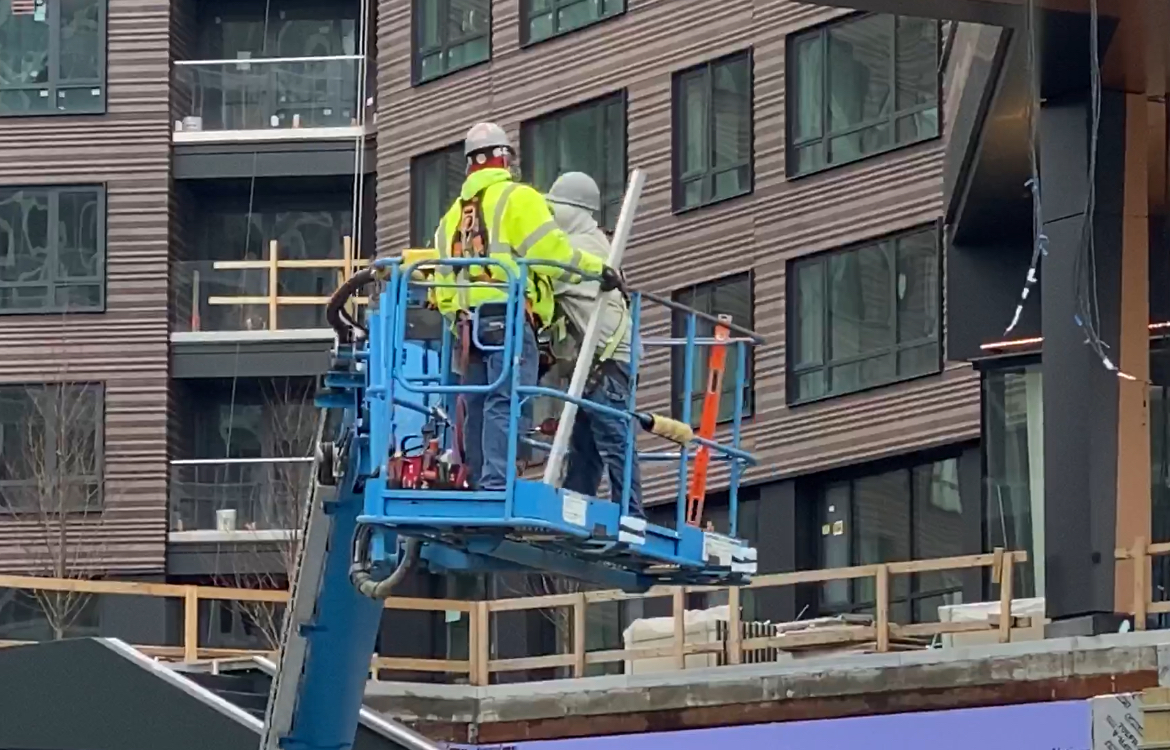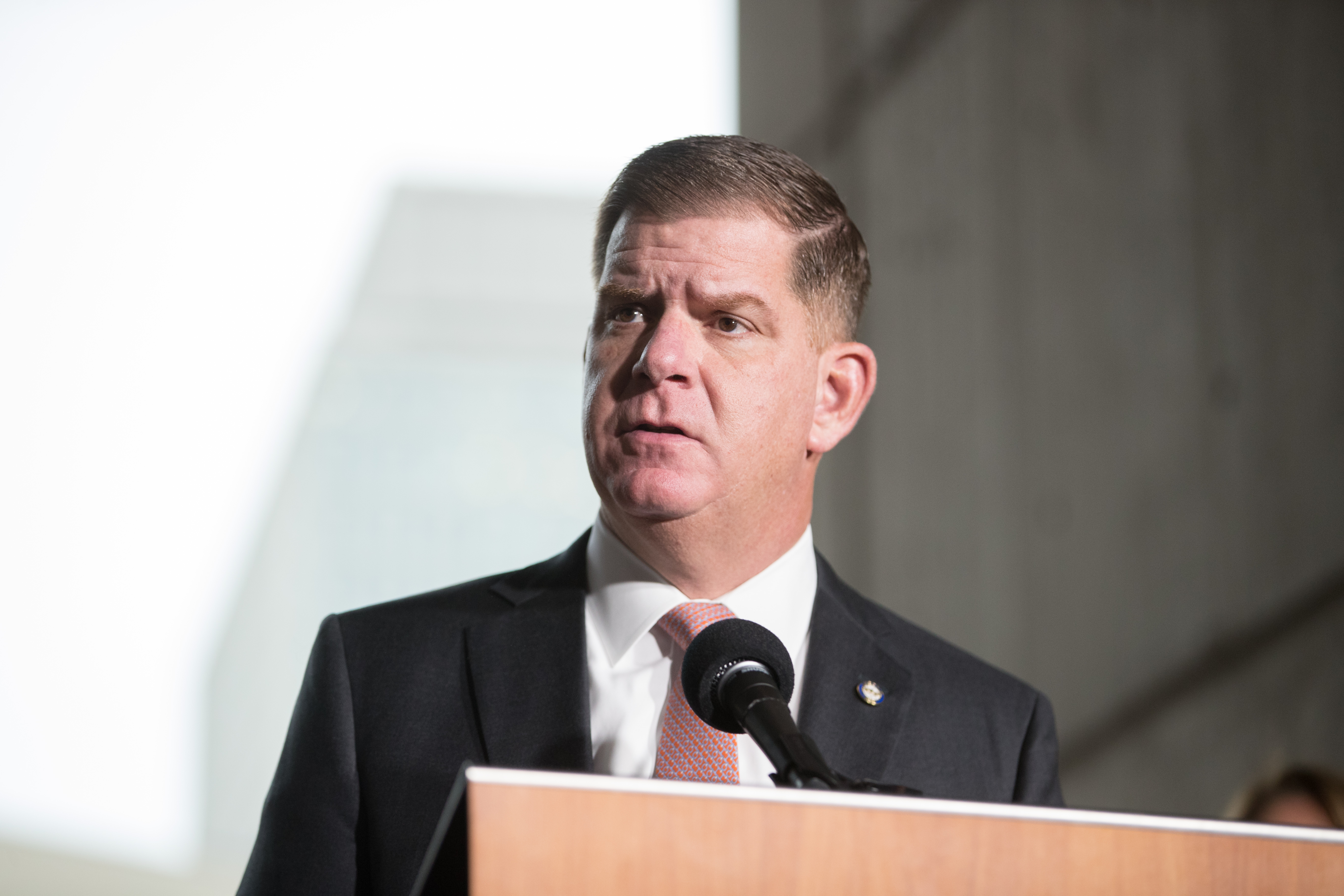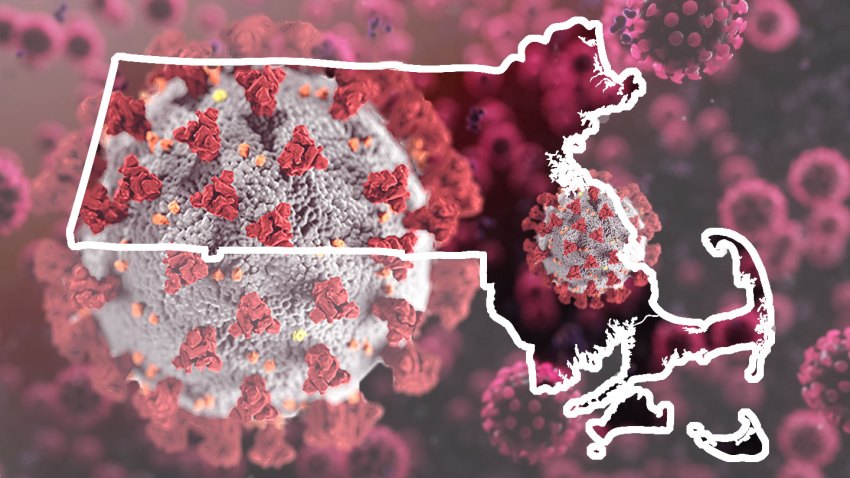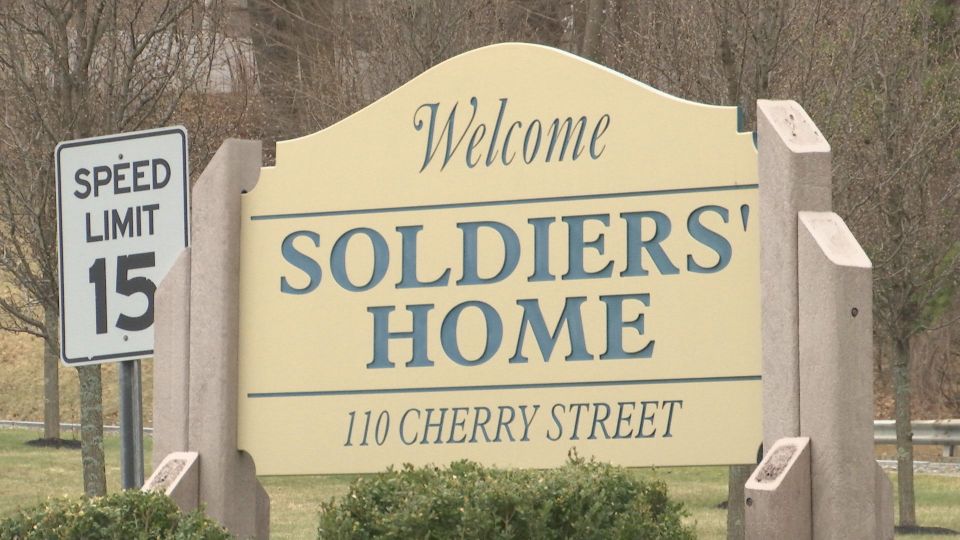Calls for construction companies to hit pause during Massachusetts' coronavirus outbreak are growing louder this week after a group representing thousands of workers urged Gov. Charlie Baker to suspend all non-essential projects.
Leaders of the Massachusetts Building Trades Council, which represents some 75,000 union workers across the state, voted unanimously Wednesday to call on Baker to halt activity at construction sites that don’t constitute emergency or essential work, beginning Friday and continuing through April 30.
"It is impractical and, in many cases, impossible to safely work on a construction project right now given the current state of affairs," Francis Callahan, president of the council, said in a statement.
Several local leaders have also split with the governor over his decision to allow construction work to continue — a move Baker has said mirrors guidelines from the federal government, which stress the importance of housing production.
Boston, Cambridge and Somerville each left local construction moratoriums in place after the governor designated construction as an essential activity, exempt from the business shut-down the governor ordered last week to slow the spread of the novel coronavirus.
Since then, a steady stream of construction workers has voiced concern to the NBC10 Boston Investigators about their safety, saying most construction sites aren’t suitable for social distancing and enhanced personal hygiene measures.
“It’s on their minds all the time,” said one Worcester-area construction worker, describing anxiety about the disease. “The environment right now is very stressful."
The worker, who asked not to be identified for fear of repercussions at his job, said the nature of construction — from shared equipment to portable toilets — makes containing a highly contagious disease unrealistic.
“It is not possible,” he told the NBC10 Boston Investigators. “It really isn’t. ... We are trying to do that but there are some aspects to the profession that we can’t do that for.”
More on Construction Amid Coronavirus in Boston
In his original March 23 emergency order, the governor required all non-essential businesses and organizations to close their physical workplaces and facilities to workers, customers and the public. Baker’s administration exempted construction work, however, and issued a letter to local officials warning they should withdraw local moratoriums that are already in place.
The order allowed all construction projects to continue, but required contractors to allow workers to follow social distancing protocols and to implement new guidance provided by the state Department of Public Health.
The DPH guidelines stress that workers who are sick must stay home, and those with symptoms such as shortness of breath and fever must report their condition to a supervisor.
The guidelines also stipulate that workers must stand 6 feet apart, wear gloves, wash their hands, conduct meetings remotely and avoid sharing water bottles. Project managers are also asked to clean and decontaminate areas such as trailers, gates, equipment, vehicles and bathrooms regularly.
In a revised set of guidelines released this week, Baker’s administration appeared to narrow the categories of construction work that should continue. The list includes housing production; essential infrastructure projects; work that supports products, services or supplies for pandemic relief efforts; and work needed for the operation or maintenance of an existing building.
The new guidelines stress that construction companies must follow public health guidelines and leave it up to local officials to enforce safety standards at job sites.
“You can either adopt these and enforce them, or if you need help enforcing them, ask us,” Baker said at a news conference Wednesday.
Baker’s approach continues to draw criticism, however, including from local officials who are tasked with enforcement. Waltham Mayor Jeannette McCarthy says she’s been busy answering calls at City Hall, including complaints about construction projects that continue in her community.
McCarthy even visited some sites in person to send a message about stopping the spread of the disease. In a letter sent to one contractor, the city’s lawyer also warned that Waltham won’t accept liability for personal injuries caused by the spread of COVID-19 on construction projects.
“You are taking the responsibility of people’s lives in your hands,” she told the NBC10 Boston Investigators. “So if you want to work and don’t protect them, this is not right.”
More on Coronavirus in Massachusetts
Cambridge state Rep. Michael Connolly also takes issue with Baker’s approach. In a message posted on Twitter, Connolly noted that state guidelines instruct construction workers to use personal protective equipment when they need to work closely together.
“At this moment, we are asking healthcare workers to ration that PPE,” he said, referring to protective gear such as masks and gloves, which is short supply around the nation. “And so I think it really speaks to a contradiction.”
The construction worker in Worcester County said he believes some colleagues will start choosing unemployment over collecting a paycheck.
“You're going to see more and more construction guys not take the risk of going to projects … and not have the risk of bringing anything home to their families,” he said.





